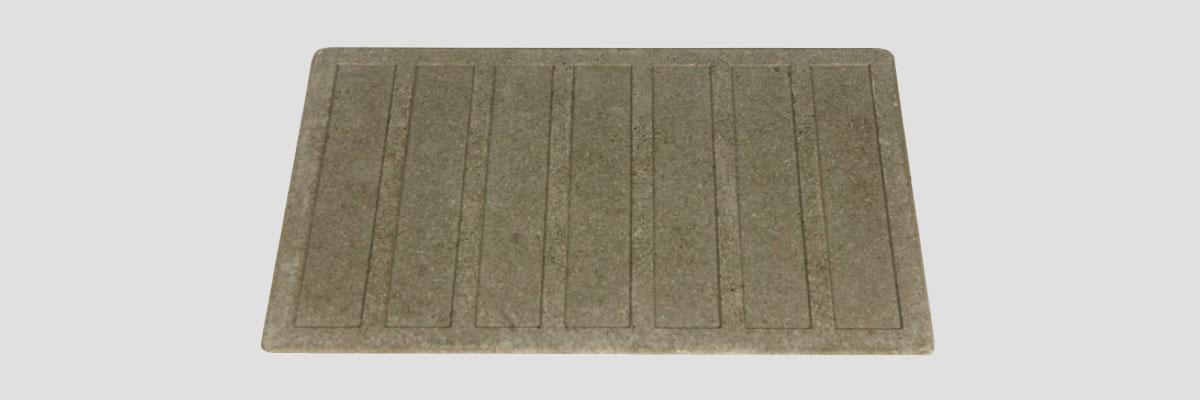Open packing - put water on
With the maxit mörtelpad eco, the workmanship of brickwork reaches a previously unknown level. The workmanship of maxit mörtelpads brings together the strengths of traditional methods of use with sensible innovations. Intuitive, quick, and safely built - brickwork 3.0.
maxit mörtelpad eco are industrially prefabricated mortar panels which are subjected to quality checks before leaving the factory. They consist of dry mortar and an integrated fibre glass reinforcement to provide additional stability. This combination ensures that brickwork can be created in a more targeted, higher quality, and simpler manner - with significant time savings.
As independent studies from the Institute for Building Research in Aachen (ibac) prove, the maxit mörtelpad eco achieves the outstanding results of the current method with a covering of thin bed mortar. This means that the mortar boards can be classified as a conventional mortar class M10 thin bed mortar with regard to their strength and bonding properties.
Simple – quick – secure – sustainable
- consists of dry mortar and a glass fibre reinforcement for more wall stability
- use on surface-ground brickwork
- strength and bonding properties as conventional M10 class thin-bed mortars
- mineral product originating in natural raw materials
- 33% less CO2 in the production process compared with a full covering of conventional thin bed mortar
Mortar pads are used on planed brickwork, where they are simply laid onto the stones or bricks. Just add water and the hot-melt adhesive sets hydraulically to form a thin, full-surface mortar joint with a thickness of one to three millimetres. This setting process is similar to that for conventional mineral mortar, so it ultimately achieves comparable structural engineering values.
The maxit mörtelpad is a mineral product made from natural raw materials. This makes it easy to erect a purely mineral outer wall (mortar, stone, plaster). The maxit mörtelpad eco has also been further improved in its formulation and composition and today, thanks to particularly low-energy special cements, records a full 33% reduction in CO2 compared with conventional thin-bed mortar - for greater sustainability in construction.

